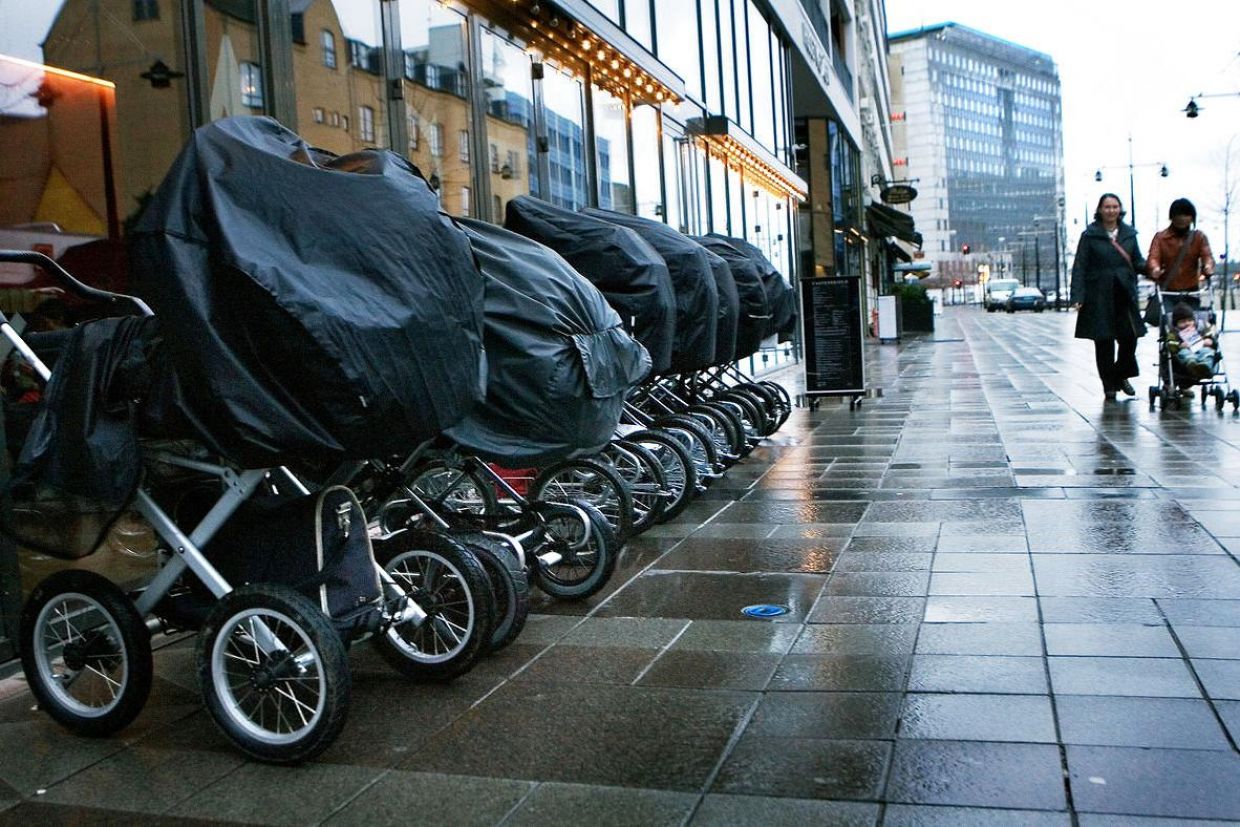“What is up with all those babies in strollers outside cafes?”
It’s a common mystery to many an American visiting Denmark. Here, it is a perfectly common thing to leave a sleeping baby or toddler in their stroller outside if you are going to a café. Some parents use a baby alarm, but many just keep an eye on the stroller from inside the café.
Some of my students find the practice unbelievable. “How can they do that? The kid will be taken by a stranger!” Their gut reaction seems to be that placing this level of trust in other people is careless and wrong.
I get the impression that in the US, assuming the worst is often considered prudent. The default setting seems to be acting as though the world is a very dangerous place and other people are potential dangers. Anyone who lets up on security is irresponsible. “Err on the side of caution” almost seems to be a moral obligation. It is a way to show that you care.
Going through life always prepared for the worst case scenario, however, is not without its consequences. Better safe than sorry is not a universal truth. Living as though you have to protect yourself all the time is stressful. It affects the way you think, feel, and perceive.
Acting as though strangers are potential threats can make you feel more threatened. It can also make you appear more hostile and create distance to other people. This may then make them act differently towards you. A negative cycle of perceived danger can gain speed. You may end up better safe and sorry.
I am not asking anyone to act recklessly. Rather I want us to be smarter about risk, to act on the actual likelihood of a risk, not the gut reaction to the inner horror movie of the hypothetical “what if”. You cannot avoid risk; protecting against it also involves risk.
If you keep acting as though other people will harm you, you risk increasing levels of stress, fear and hostility both in yourself and in the people around you. You can make a choice between the incredibly unlikely risk of someone kidnapping your child and the likely risk of added stress in your (and possibly your child’s) life. It is your choice; make it deliberately.
Social trust in a society has been linked to higher wellbeing and economic growth. It is a positive force for both the individual and the population as a whole. Denmark has one of the highest levels of social trust in the world. Many consider this an important reason why the Danes often place at the top of international surveys of happiness and wellbeing.
Some dismiss the comparison because of the many differences between Denmark and the US, but no matter the culture, trust is worth working for. And one could argue that the Americans would have a good chance of building trust between each other with their open and friendly manner. I am baffled that they seem to think so little of each other.
A popular intervention from positive psychology is “Random Acts of Kindness”: doing small kind things to strangers. Perhaps we should introduce “Random Acts of Trust”. Find ways to place trust in other people.
Act as though you are surrounded by people who mean well. Just try it on for a while. See what it does to your day to go through it looking for reasons and ways to rely on others. It may be better to live in trust and risk being disappointed, than to live with the risks you run when you never let down your guard.


